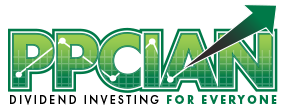Last week, I discussed some advanced Google AdWords match type strategies. This week I’m looking forward to offering a few more tactical campaign tips that will help you improve your Google AdWords account immediately. While I focused on the search match side last week, I’ll focus on the content match today. Content match is often a confusing and tricky subject for many pay per clickers. I’m hoping to remove some of that confusion with this post inspired by a PPC Ian reader!
Content Match Strategy 1: Create Separate Search and Content Campaigns

I’m going to start out with a very simple yet often overlooked strategy. Always create separate campaigns for search and content. I repeat: There is no good reason to ever mix the two. Search and content require very different strategies for success, both in terms of structure and also ad copy. Moreover, it’s very difficult to break out content match once you have something that works. In short, if you mix the two, you’re setting yourself up for long-term failure. Even if you create two identical campaigns in the short-run with the intent of tweaking them over time, this is a far better strategy than going with just one campaign.
Content Match Strategy 2: If It Works, Leave It Alone!
From my experience, content match is very sensitive. Any small change to ad copy, keyword composition, or bids can totally destroy a winning content match ad group. For that reason, I’m a huge proponent of leaving my content match ad groups alone. If it works, I make as few changes as possible. If I must make a change, I try to keep the changes minor. If I want to test something new, even if it’s just a minor variation on my existing ad group, I’ll go ahead and create a new ad group.
Content Match Strategy 3: Start With Realistic Bids
This tip ties directly into the last one. From my experience, bid changes can totally mess with your content match campaign. For that reason, I always start off with very realistic bids in content match, bids that are where they need to be in the long-term to ensure profitability. In my video about launching a new AdWords campaign I share my strategy of bidding 200 percent of your long term bid out the gate when launching search match campaigns. This is totally important in building a great quality score and click through rate from the beginning. However, the strategy is very different in content: Always start with your long-term bid and leave it alone.
Content Match Strategy 4: One Keyword Per Ad Group Works!
If you’ve worked with me in the past, you know that I’m a big fan of one keyword per ad group in search. In fact, I like to take credit for inventing the strategy back in 2005. The ClickEquations blog recently posted about The Myth of Single Keyword Ad Groups (thanks to another PPC Ian reader and friend for pointing this post out). I couldn’t disagree more in the world of search. I was leveraging the one keyword per ad group strategy all the way back in 2005 and it has worked consistently on the right set of keywords. It definitely doesn’t make sense for all keywords, but can work wonders for certain keywords. However, I’m here to say that it can also work well for content. It wasn’t always this way. Back in the day, content needed several keywords to form an opinion of your theme and match your ad group to a relevant webpage. These days, however, content is a lot smarter and if you’re trying to gain as many conversions as possible and have an offer that’s broadly appealing, the single keyword strategy may work wonders even in content match.
Content Match Strategy 5: Experiment With Combinations
I’d like to close out with a really cool tactic: Leveraging mathematical combinations. Let’s say you have a set of 10 high volume keywords. I’ll always start off with all the 1 combinations of this set (10 single keyword ad groups). Then, I’ll start experimenting with other combinations such as all the 3 combinations (120 ad groups). As you can see, the number of ad groups can quickly balloon out of control! For this very reason, I’ll often separate my combination experiments into their very own account. The beauty of this strategy is that you can sometimes strike gold. The vast majority of your ad groups will go nowhere and you’ll eventually end up pausing them. However, a few of them will often take off!
Another similar tip: Try repetition within keywords in content. You would never buy the word "mortgage mortgage mortgage" in search. In content, however, these repetitious keywords can really help out. A sample adgroup targeting mortgage refinance might include the following keywords:
- refinance
- refinance refinance
- mortgage
- mortgage refinance
- refinance mortgage
- mortgage refinance refinance
Image of Computer Screen Content © iStockPhoto – Petrovich9









